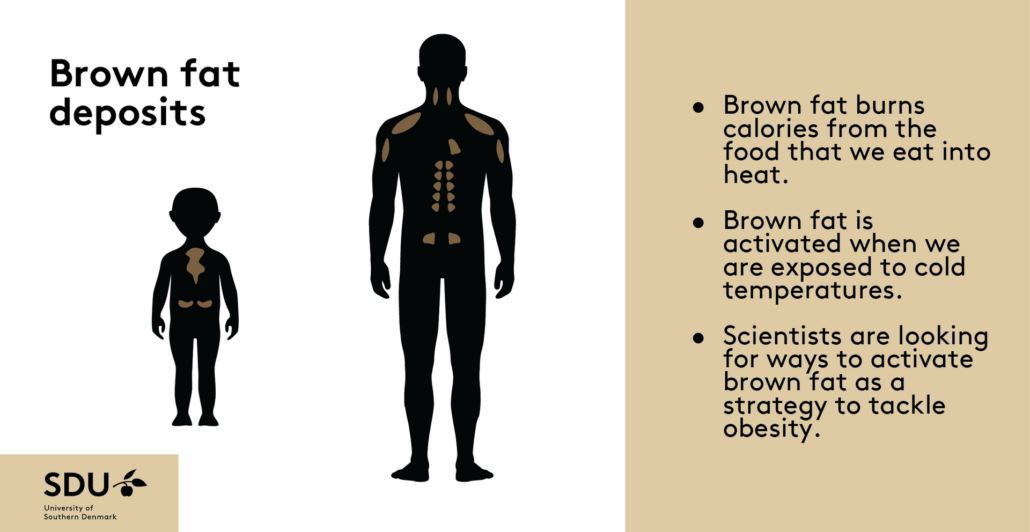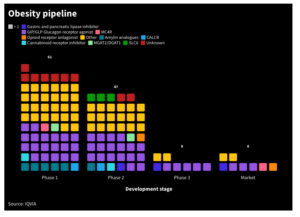
Obesity: reseachers switch on brown fat cells
A German-Danish team has discovered that a truncated version of the enzyme adenlyate cyclase 3 can be targeted to transform fat-storing white adipocytes into fat-burning brown adipocytes.
The new discovery could herald a revolution in obesity research. If the principle discovered in male mice also applies in humans, therapeutics regulating the activity of the enzyme fragment could pave the way to obesity resistance (Nature Metabolism, doi 10.1038/s42255-024-01033-8. Up to now, biopharma companies such as Novo Nordisk or Eli Lilly had their greatest successes in adipose weight reduction using GLP-1 and GIP receptor agonists that must be taken life-long. Like gene therapies, the new discovery might fight obesity at its roots and have a long-term effect in obese patients.
Most mammals harbour two morphologically and functionally distinct types fat cells: White adipocytes consist of a single lipid droplet and ensure energy storage, whereas brown adipocytes (BAs) are multilocular and can convert foods into heat in a molecular process termed non-shivering thermogenesis (NST). Interest in brown adipocytes arose after the discovery that these cells not only exist in small animals or human infants but also in adult humans and that cold ambient temperature exposure or stimulation of beta-adrenergic G-protein-coupled receptors (GPCRs) activate brown adipocytes resulting in a reduction of body mass index (BMI). Specifically, the main physiological stimulus for non-shivering thermogenesis is cold temperature, which activates the sympathetic nervous system and releases the neurotransmitter nordrenaline. Noradrenaline (NE) activates beta-adrenergic GPCRs, which then stimulate synthesis of the second messenger cAMP by transmembrane enzymes, so called adenylyl cyclases. In turn, this activates protein kinase A (PKA), thus inducing lipolysis in bown fat cells
Researchers headed by Prof. Jan-Wilhelm Kornfeld (Denmark) and Dagmar Wachten (Germany) now discovered that brown fat has built-in mechanism that switches it off shortly after being activated. Their research team identified a cold-inducible promoter that generates a 5’ truncated AC3 mRNA isoform called Adcy3-at that retains adenylate cyclase 3 in the endoplasmatic reticulum, thus reducing the pool of adenylyl cyclases available for G-protein-mediated cAMP synthesis, which drives lipolysis in brown fat cells.
“Looking ahead, we think that finding ways to block AC3-AT could be a promising strategy for safely activating brown fat and tackling obesity and related health problems”, said first author Hande Topel. “When we investigated mice that genetically didn’t have AC3-AT, we found that they were protected from becoming obese, partly because their bodies were simply better at burning off calories and were able to increase their metabolic rates through activating brown fat”. Two groups of mice were fed a high-fat diet for 15 weeks, which rendered them obese. The group that had their AC3-AT protein removed, gained less weight than the control group and were metabolically healthier. “The mice that have no AC3-AT protein, also accumulated less fat in their body and increased their lean mass when compared to the control mice”, says co-author, Ronja Kardinal from the University of Bonn. “As AC3-AT is found not only in mice but also in humans and other species, there are direct therapeutic implications for humans”.
Intriguingly, the study not only identified AC3-AT, which is a shorter, previously unknown form of the AC3 protein. The researchers also identified other unknown protein/gene versions, that respond to cold exposure, similar to AC3-AT.“However, further research is needed to elucidate the therapeutic impact of these alternative gene products and their regulatory mechanisms during brown adipose tissue activation”, stressed Wachten.“Understanding these kinds of molecular mechanisms not only sheds light on the regulation of brown fat but also holds promise for unraveling similar mechanisms in other cellular pathways,” commented Kornfeld.


 Getty Images for Unsplash+
Getty Images for Unsplash+ IQVIA
IQVIA